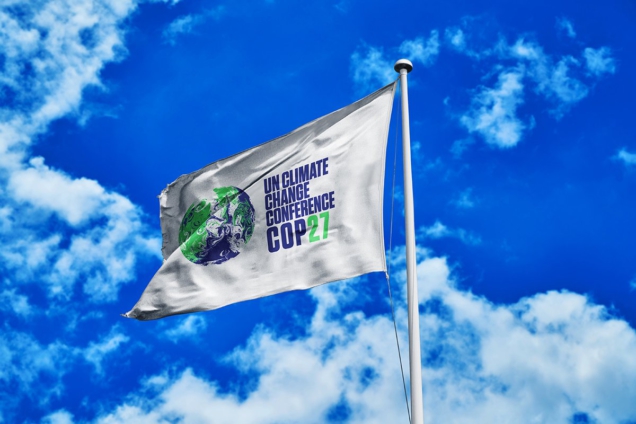The International Capital Market Association (ICMA), which sets the rules in the bond market, has proposed plans for countries hit by natural disasters caused by climate change to automatically freeze debt payments.
The introduction of new 'climate resilient debt clauses,' or CDRCs, aims specifically at low-income countries affected by disasters such as drought, flooding, and hurricanes.
Governments in such countries can use sovereign bonds to raise funds on global capital markets.
The mechanism will allow African countries on the verge or in the throes of a debt crisis to pause debt payments for a maximum of two years in order to free up cash flow to combat climate disasters.
Mr Samaila Zubaru, President and Chief Executive of Africa Finance Corporation, stated on Wednesday, November 9, 2022, that adaptation must be a priority for the continent, but it puts additional strain on Africa's current infrastructure needs.
He said, there is a great need in Africa and that, the infrastructure deficit is estimated to be $2.3 trillion.
"If you factor in the need to climate-proof and build resilient infrastructure, it becomes about $3 trillion.”
On the same day that many African delegates sought opportunities to make their cases heard, a group of over 85 African insurers unveiled the African Climate Risk Facility (ACRF) to assist the continent's most vulnerable communities in climate-proofing.
The commitment will protect 1.4 billion people from floods, droughts, and tropical cyclones by providing $14 billion in climate risk insurance to African sovereigns, cities, aid agencies, and non-governmental organizations (NGOs) through 2030.
Both measures will go a long way toward closing the continent's climate risk financing gap, as rich nations continue to dismiss demands for compensation for countries suffering "loss or damage" as a result of global warming.
Experts believe that if African borrowers can use the newly introduced CDRCs to avoid sovereign defaults while dealing with the aftermath of their latest natural disaster, it will benefit not only affected populations but also their global creditors.
On November 14, a panel of speakers from the private, public, and civil society sectors will discuss solutions to commodity-driven deforestation and highlight efforts to better conserve and restore forests while improving farmer livelihoods.
They will also discuss current initiatives, such as the Agri-Commodity Sector Roadmap, the Forest Data Partnership, US government action, and others, as well as future challenges.
Latest Stories
-
Let’s prioritize research quality in higher education institutions for industrial growth-Prof. Nathaniel Boso
2 hours -
Herman Suede is set to release ‘How Dare You’ on April 24
6 hours -
Heal KATH: Kuapa Kokoo, Association of Garages donate 120k to support project
6 hours -
KNUST signs MOU with Valco Trust Fund, Bekwai Municipal Hospital to build student hostel
6 hours -
The influence Ronaldo has on people, Cadman Yamoah will have same on the next generation – Coach Goodwin
7 hours -
Gender Advocate Emelia Naa Ayeley Aryee Wins prestigious Merck Foundation Awards
8 hours -
South Africa bursary scandal suspects granted bail
8 hours -
Ecobank successfully repays $500m Eurobond due April 18
8 hours -
Re: Doe Adjaho, Torgbui Samlafo IV, call for Unity among Paramountcies in Anlo
8 hours -
Extortion and kidnap – a deadly journey across Mexico into the US
8 hours -
Rihanna says fashion has helped her personal ‘rediscovery’ after having children
9 hours -
Development Bank Ghana targets GH¢1bn funding for commercial banks in 2024
9 hours -
Shatta Movement apologises to Ghana Society of the Physically Disabled after backlash
10 hours -
Sammy Gyamfi writes: Tema-Mpakadan Railway Project; A railway line to nowhere
10 hours -
Bright Simons: Is the World Bank saving or harming Ghana?
10 hours

